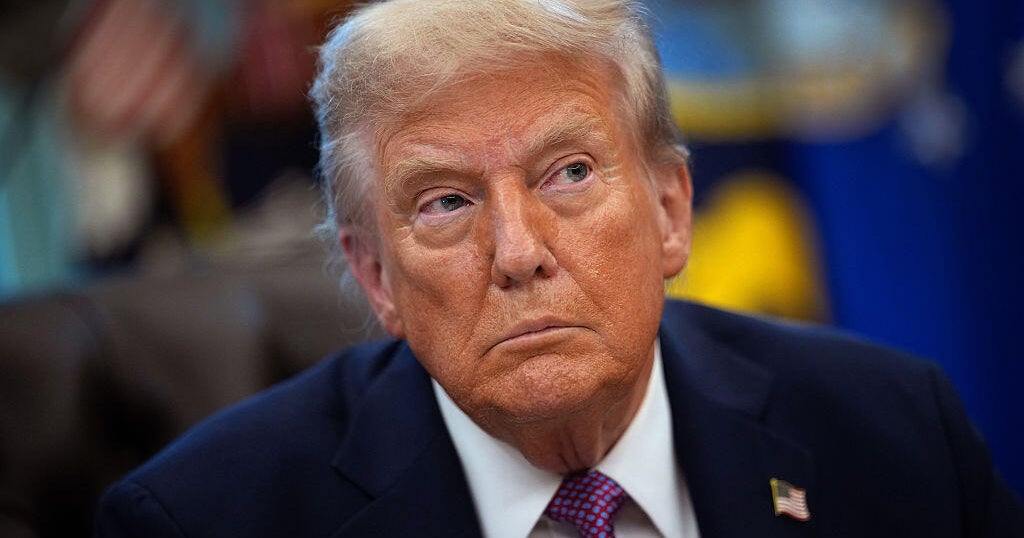In a recent series of provocative statements and actions, former President Donald Trump has intensified his rhetoric and policy stances regarding crime and immigration enforcement in major U.S. cities, specifically targeting Chicago. Known for his aggressive and often controversial methods, Trump has made clear his intention to send federal troops to Chicago in an operation reminiscent of those previously seen in Los Angeles and Washington, D.C.
Trump’s plan, articulated through various official statements and social media postings, underscores an approach aligned with his long-held view of restoring order through decisive federal intervention. Recently, on the social media platform Truth Social, Trump shared a post with an AI-generated image that alludes to the film “Apocalypse Now” with the caption: “I love the smell of deportations in the morning … Chicago about to find out why it’s called the Department of WAR.” This explicit and militaristic rhetoric has added fuel to an already heated debate on the role of federal power in local jurisdictions, particularly those managed by Democratic leadership.
Chicago, the nation’s third-largest city and a Democratic stronghold, has been a frequent subject of Trump’s criticism throughout his presidency. Citing high crime rates and issues with illegal immigration, he has repeatedly highlighted the city as a prime example of what he perceives as failed urban policy and governance. In line with actions taken in Los Angeles, where National Guard troops were deployed, and in Washington, D.C., where he orchestrated a takeover of local law enforcement, Trump’s focus on Chicago extends his policy footprint.
However, this aggressive federal push has not been without significant controversy and legal challenges. A federal court in California recently ruled that Trump’s deployment of the National Guard and active-duty U.S. Marines to Los Angeles was unlawful, violating the 1878 Posse Comitatus Act, which expressly forbids military involvement in domestic law enforcement without explicit Congressional approval.
Despite such setbacks, Trump remains undeterred. At an Oval Office event, when pressed by reporters about the specifics of the deployment in Chicago, he cryptically remarked, “We’re going in. I didn’t say when, but we’re going in.” This ambiguity has only increased tensions and speculation about the scale and timing of the operation.
The lack of detailed information on the planned activities in Chicago has not stopped preparations on the ground. Illinois Governor JB Pritzker was quick to condemn Trump’s threats as an act of aggression against an American city, expressing his disapproval through a post on X (formerly Twitter), where he wrote, “The President of the United States is threatening to go to war with an American city. This is not a joke. This is not normal. Donald Trump isn’t a strongman, he’s a scared man. Illinois won’t be intimidated by a wannabe dictator.”
In anticipation of imminent federal action, local leaders and activists are bracing for what they perceive could be a protracted engagement with federal forces. An internal government memo, obtained by CBS News, detailed requests from the Department of Homeland Security (DHS) to the Pentagon for logistical support for approximately 250 federal agents and 140 vehicles at Naval Station Great Lakes. Located 50 miles north of Chicago, this facility would act as the operational hub for the crackdown.
The DHS statement outlined a resolute approach to tracking down and deporting illegal immigrants involved in criminal activities, stating that the operation could extend to other cities such as Boston, further indicating a broad enforcement directive under Trump’s leadership. This stand has been criticized by various community groups, church organizations, and advocacy networks within Chicago, who argue that such heavy-handed tactics sow fear and discord in communities already stressed by local socio-economic challenges.
Adding to the community disquiet was the decision to postpone a key cultural event, the Mexican Independence Day festival, a decision made by organizers out of concern for potential sweeps or raids during the festivities.
As Trump continues to advocate for stringent federal intervention to combat crime and enforce immigration laws, the resistance from local governments and communities remains stubborn and fierce. Legal battles loom large on the horizon, as do broader debates about federalism, civil liberties, and the balance of powers in the United States.









